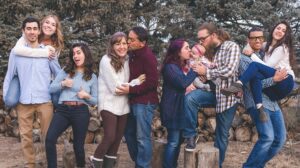One in five Canadians lives with a disability. That’s over 6.2 million people who face daily challenges related to mobility, vision, hearing, mental health, neurodivergence, chronic illness, and more. Yet, accessibility remains far from universal. From public transit systems that exclude wheelchair users to hiring practices that marginalize neurodivergent applicants, systemic barriers continue to limit the opportunities and dignity of disabled Canadians.
The COVID-19 pandemic only worsened the inequality. Many disabled people faced higher health risks, increased isolation, and reduced access to essential services. Meanwhile, support programs remain fragmented and underfunded across the country. Physical inaccessibility, digital exclusion, and widespread ableism continue to restrict full participation in society.
But across Canada, disability-led and disability-focused organizations are working to change that. These charities fight for policy change, offer adaptive programs, provide vital support services, and promote inclusion in schools, workplaces, and communities. Their work is essential to creating a society where every person regardless of ability—can thrive.
Easter Seals Canada: Empowerment Across Lifespans
easterseals.ca
Easter Seals is one of the oldest and most recognized charities supporting Canadians with disabilities. With regional chapters across the country, their programs focus on mobility, independence, and community inclusion. They provide accessible summer camps for children and youth, home and vehicle modification funding, and job training programs for adults.
In 2023, Easter Seals funded over 2,000 accessibility-related renovations and hosted over 1,300 campers across its various camps. These camps are specially designed to accommodate children with complex medical or physical needs, offering not just recreation but community and confidence.
Donating to Easter Seals helps ensure that children can play, adults can work, and families can live in homes that meet their needs.
DAWN Canada: Advocating for Women With Disabilities
dawncanada.net
The DisAbled Women’s Network (DAWN) Canada is a feminist disability organization advocating for systemic change. Their work centers the voices and experiences of women, girls, trans, and non-binary people with disabilities particularly those who are racialized, Indigenous, or LGBTQ+.
DAWN leads national research, policy advocacy, and public education on issues such as gender-based violence, reproductive justice, employment equity, and accessible healthcare. They were instrumental in pushing for disability-inclusive federal gender-based violence strategies and continue to challenge ableism in feminist spaces.
Supporting DAWN Canada means backing intersectional, disability-led solutions to some of Canada’s most pressing social justice issues.
CNIB Foundation: Redefining Vision Loss
cnib.ca
For more than 100 years, the CNIB Foundation has supported blind and partially sighted Canadians through a wide range of services. They offer technology training, accessible reading materials, guide dog programs, and career development resources.
Their innovative CNIB SmartLife Centres help people with sight loss explore accessible tech—from screen readers to tactile devices while their youth programs encourage confidence and independence from an early age. CNIB also advocates at the national level for digital accessibility, inclusive design, and equitable transit.
In a world designed for sighted people, CNIB helps level the playing field. Donating supports tools and training that unlock independence.
Abilities Centre: A Hub for Inclusive Living
abilitiescentre.org
Located in Whitby, Ontario, the Abilities Centre is a fully accessible, multidisciplinary facility that offers health, wellness, arts, and employment services to people of all abilities. It blends recreation with rehabilitation, education with empowerment.
Programs include inclusive fitness classes, adaptive sports leagues, social connection groups, and skill-building workshops. Their Impact Lab works with community partners to create research-driven solutions for accessibility and inclusion across Canada.
What makes the Abilities Centre stand out is its commitment to universal design not just making things accessible, but building environments where everyone belongs from the start. A donation here supports innovative, community-rooted inclusion.
Autism Canada: Supporting Neurodiverse Lives
autismcanada.org
Autism Canada is a national voice for individuals on the autism spectrum and their families. They offer education, advocacy, and a resource-rich helpline for navigating school systems, healthcare, employment, and social services.
Their work challenges stereotypes about autism and promotes neurodiversity as a strength. Initiatives include mental health support for autistic youth, inclusive hiring programs, and toolkits for teachers to create sensory-friendly classrooms.
By supporting Autism Canada, donors help fight stigma and promote understanding while also funding real, life-changing resources for individuals and families.
March of Dimes Canada: Life-Changing Independence
marchofdimes.ca
March of Dimes Canada serves people with physical disabilities through a wide range of services: home care, assistive technology, peer support groups, and employment training. Their After Stroke program helps survivors transition back to independent living, while their Conductive Education program teaches mobility and life skills to children and adults with neurological conditions.
They also lead advocacy campaigns for accessible housing, transit, and funding for caregivers. In 2022, their Tech for Impact initiative helped over 10,000 people connect with assistive technology and digital support.
Every dollar given helps Canadians with disabilities live with greater autonomy, dignity, and purpose.
Neil Squire Society: Breaking Tech Barriers
neilsquire.ca
The Neil Squire Society uses technology, knowledge, and passion to empower Canadians with disabilities. Based in British Columbia but active nationally, they focus on assistive technology, digital literacy, and workplace inclusion.
Their Makers Making Change program connects makers and volunteers with people who need custom accessibility devices—like adaptive switches, mouth-controlled keyboards, and low-cost communication aids. Their employment programs help job seekers with disabilities find meaningful work with training, mentorship, and assistive tech support.
Neil Squire’s blend of innovation and inclusion exemplifies how technology can unlock opportunity. Supporting them brings real solutions to real lives.
Special Olympics Canada: Inclusion Through Sport
specialolympics.ca
Special Olympics Canada offers year-round sports training and competitions for children, youth, and adults with intellectual disabilities. Their programs empower over 41,000 athletes in communities across the country to build confidence, friendships, physical fitness, and leadership skills.
Athletes compete in local, regional, national, and international games, and the organization also supports health screening and education to improve long-term well-being. Their Unified Sports program pairs people with and without intellectual disabilities on the same team to foster inclusion and break down stereotypes.
A donation to Special Olympics helps fund equipment, coaching, and inclusive spaces where everyone can shine both on and off the field.
Rick Hansen Foundation: Accessible Communities for All
rickhansen.com
Since completing his iconic Man In Motion World Tour in 1987, Rick Hansen has dedicated his life to breaking down physical barriers. The Rick Hansen Foundation now works across Canada to improve accessibility in public spaces through ratings, education, and built environment advocacy.
Their flagship program, the Rick Hansen Foundation Accessibility Certification (RHFAC), evaluates buildings and sites for meaningful accessibility, going beyond codes to measure real-world usability. The foundation also funds youth leadership programs and initiatives that advance spinal cord research and inclusive design.
Supporting the Rick Hansen Foundation means building a Canada where streets, stadiums, schools, and workplaces welcome everyone.
Voice of Albertans with Disabilities (VAD): Championing Community Engagement
vadsociety.ca
Based in Edmonton, Voice of Albertans with Disabilities (VAD) focuses on building awareness and fostering meaningful engagement between people with disabilities and the communities they live in. Their programs include disability rights training, inclusive employment support, and advocacy for better transportation and housing access.
VAD also plays a major role in shaping provincial policy through consultations and partnerships with government and private organizations. They host accessibility audits and community forums to empower people with lived experience to directly inform the changes they want to see.
By supporting VAD, donors help foster a culture of accessibility and inclusion in Alberta, while amplifying the voices of disabled leaders at all levels of society
Where Do We Go From Here?
Disability inclusion isn’t charity it’s a matter of rights and equity. While progress has been made, Canada still has a long way to go in building a society that values every body and every mind.
First, support organizations that are disability-led. These groups center lived experience and are best positioned to create meaningful, sustainable change. Monthly donations help provide stable funding that allows for long-term planning.
Second, think beyond ramps and elevators. True accessibility includes digital inclusion, sensory-friendly spaces, flexible hiring, and anti-ableist education in schools. The charities above are working on all these fronts and need our help.
Third, advocate. Push governments, employers, and institutions to adopt universal design principles. Demand accessible transit, affordable housing, and inclusive education policies. Vote with disability justice in mind.
And finally, listen. Make space for disabled voices in leadership, media, and community planning. Recognize that inclusion is a collective responsibility not a favour.
Final Thoughts
Disability is a natural part of the human experience, not a defect, not a tragedy. And the strength, creativity, and resilience of disabled people have shaped our communities in countless ways.
The charities in this article including Easter Seals, DAWN Canada, CNIB Foundation, Abilities Centre, Autism Canada, March of Dimes Canada, Neil Squire Society, Special Olympics Canada, and the Rick Hansen Foundation—are not just supporting individuals. They are reshaping systems, shifting narratives, and breaking barriers.
If we are serious about building a Canada that leaves no one behind, we must champion disability inclusion with the same urgency we give to any other human rights issue. Our donations, voices, and choices can create a country where accessibility is not the exception but the norm.




















